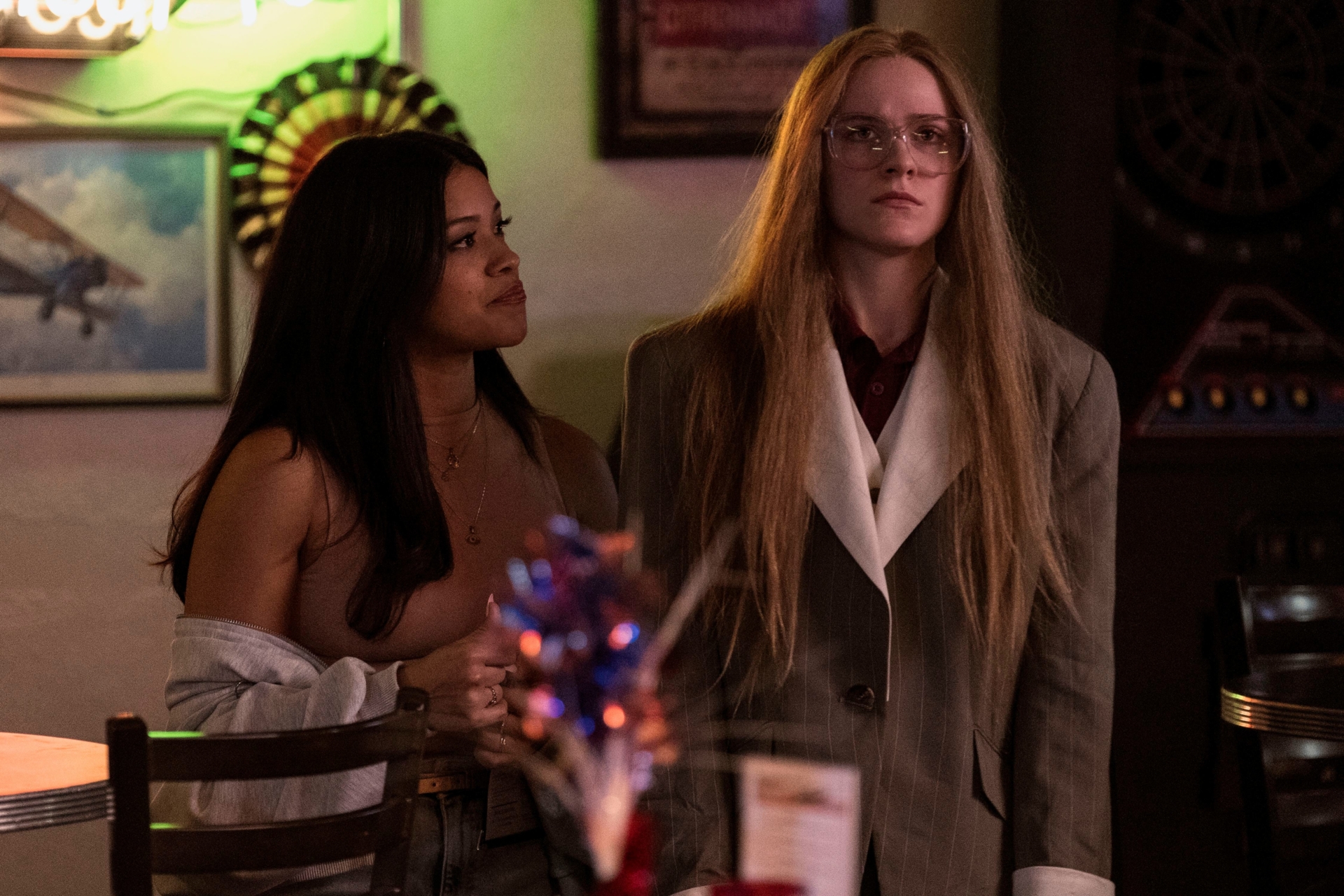Miranda July’s Kajillionaire, like a kajillion dollars, is a lot. It’s a kinda-sorta heist movie, a quirky family comedy, an opposites-attract romance, and a satire not only of capitalist greed, but of anti-capitalist posturing, too. Also, the protagonist’s name is Old Dolio, and they’re not a crotchety sea captain. No, Old Dolio is a young woman who knows nothing but the grift: her impoverished parents are grifters; the landlord who houses them in the basement of a soap factory is a grifter; the system that allows landlords to exploit the poor is, according to Ol’ Dolio’s parents, one big grift; and the newest addition to the family business is a wannabe grifter. You’d forgive Dolio for not being a more trusting person.
Indeed, she’s closed off and a little naïve, but she has a world-weary swagger about her—you can tell her street smarts are compensating for smarts of other varieties. Evan Rachel Wood plays the character like a Bill and Ted type who flunked their history report and became incapable of friendship: she may be down and out, but nothing can quell that lanky gait and disarming innocence. Despite a life of hard knocks, there’s an airiness to way she carries herself that’s echoed in the film’s tone. Its heavier elements are designed to hit lightly. The soap factory the family is forced to live in? It’s actually a bubble factory, labeled matter-of-factly as Bubbles Inc., in a sly bit of set design that derides the value of American industriousness. The new member of the family, keen to learn their grifting ways? Just a stranger that Old Dolio’s parents picked up on a flight. Dolio’s discomfort with the new recruit—an outgoing, preening woman played by Gina Rodriguez—is the conflict that drives the narrative.
Or that drives alongside the narrative, rather. Old Dolio’s parents (the very, very game Richard Jenkins and Debra Winger) shut down their daughter’s concerns at the outset, happy to have a fourth pair of hands for their small-time heists. The relationship between Old Dolio and Rodriguez’ character is put on the back burner until the third act. Until then, Kajillionaire consists of tragicomic vignettes that, each in their own way, stress the loneliness of an environment that prioritizes payment over people. July’s script excels at creating specific, offbeat situations that demonstrate how lovely life could be if we didn’t see each other as sites of transaction (and not just monetarily).
What it doesn’t excel at is the pacing and focus of these vignettes. They’re too often inflated with humor that feels tangential. Many scenes aren’t truly tragicomic; they’re tragic but with comedy slathered onto their wounds like a dripping salve. The film’s pool of genres only further unravels the experience: sometimes the humor is satirical and introspective, sometimes it’s screwball and broad, sometimes it alternates between the two in one scene and distracts from what’s beneath the veneer of genre-hopping idiosyncrasy. And yet, the humor is rarely consistent enough to feel like the main event. Would letting a sad thought sit be too at odds with the film’s light tone and visual bounce? Yeah, probably. Maybe that’s why the film’s best scenes are its most sullen and stripped down. But then Kajillionaire jumps to the next vignette without a moment to spare.
The third act, which puts Wood and Rodriguez in the spotlight and makes their relationship the central focus, fares better. The tone and style fit their unlikely coupling rather snugly; their chemistry illustrates the point instead of driving alongside it, and the relative calm of the events gives the mystical, marching score room to breathe. In other words, the movie comes together for the first time. But there’s not much great movie left in the runtime at that point.
★★½ (2.5/5)




